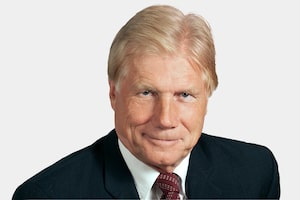In Ottawa, the real power brokers remain hidden. Canadians have little idea who they are. They work in the Prime Minister's Office which is in the Langevin Block which is off-limits to reporters. In Washington, the media have access to the White House, the executive branch. In Ottawa the door to the inner sanctum is barred. The media congregate where power does not reside: on Parliament Hill.
Writing a book on the Harper government required getting access to the unknown insiders. That was one hurdle. Another was Stephen Harper's attitude to anyone probing his operation. He went so far as to try and stop the publication of a book about it, a predominantly positive book, by his top strategist Tom Flanagan. If he did that to Mr. Flanagan, I thought, how would he respond to a book by a lowly journalist?
For Harperland, I asked John Williamson, his then communications director, about getting an interview with the PM. Mr. Williamson looked at me like I had spent too much time in a lunar module. The next step was to go to his top advisers. I should say - former top advisers. A rule of thumb in reporting on any organization is that it is best to go to the people who have just left it. They can obviously speak more freely. I started calling these guys. The pitch? "Look, I'm doing this book and you played an important role and you shouldn't leave the telling of the story to your adversaries."
I was hardly the Conservatives' most favoured journalist in town, though when I was avidly pursuing abuse-of-power stories involving the Chrétien Liberals, they thought I was just fine. To my fortune, several agreed to be interviewed and most went on the record. I had feared it would be the "on background" routine. Anonymous sources.
To the book's detriment, some major players, including Harper campaign manager Doug Finley, wouldn't bite. I worked through intermediaries to try and get to him. The word came back, "Tell Lawrence Martin to go piss up a river." Others - even old Tory senators whose jobs were safe - were terrified of what Mr. Harper might do to them if they uttered a word. They wouldn't even talk off the record.
Writing books on Jean Chrétien was different. The sources were all over town. The cabinet had more power. Mr. Chrétien gave an interview, a cold one. He didn't want to do it, but it was in his interest to frame his actions in his own words.
For Harperland, I approached Liberal Leader Stéphane Dion. He said no, that for him to talk would be seen as sour grapes. And he was probably right. But some time later, he stopped me on the street, saying he wanted to tell me what he really thought of Mr. Harper. "A Straussian," he said.
The Harper men who spoke, including former cabinet minister David Emerson, didn't do so out of any desire to undermine the Prime Minister. They said mainly positive things and revealed the odd moment when he showed a human side. They appeared neither to like him nor dislike him. The feeling I came away with was that this is a distant, calculating man seldom weighed down by pangs of conscience. He called to mind Shakespeare's words: "Conscience is but a word that cowards use."
 Lawrence Martin
Lawrence Martin